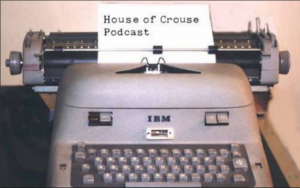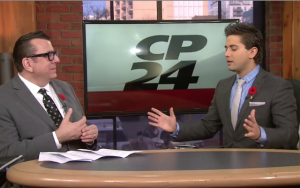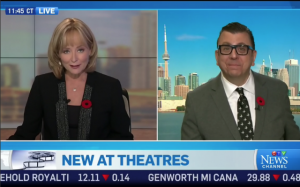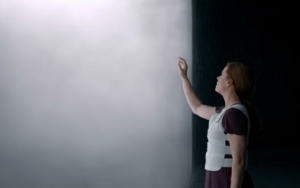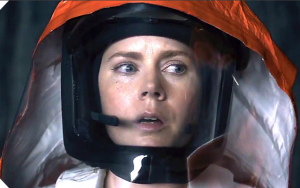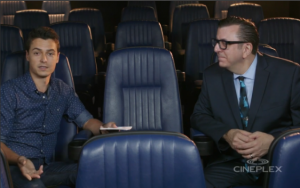RICHARD’S HIGHLIGHTS FROM 2016: THE BEST STUFF I HEARD THIS YEAR.
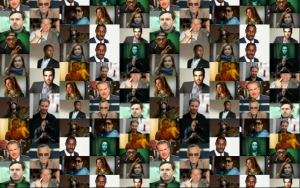 As the calendar turns the page to 2017 let’s have a look back at the great people I met, wrote about or chatted with in 2016. Warren Beatty gave me his home telephone number, I drank cranberry juice with Denzel Washington, had Elvis’s girlfriend and JFK’s mistress on my radio show and fulfilled childhood dreams by hanging out with Iggy Pop and Cheap Trick. On stages, studios, in hotel rooms, on phones and even in the back of taxis, they spoke and I listened. Here’s some of the best stuff I heard this year:
As the calendar turns the page to 2017 let’s have a look back at the great people I met, wrote about or chatted with in 2016. Warren Beatty gave me his home telephone number, I drank cranberry juice with Denzel Washington, had Elvis’s girlfriend and JFK’s mistress on my radio show and fulfilled childhood dreams by hanging out with Iggy Pop and Cheap Trick. On stages, studios, in hotel rooms, on phones and even in the back of taxis, they spoke and I listened. Here’s some of the best stuff I heard this year:
Casey Affleck on throwing himself into the role of a depressed man in Manchester by the Sea: “It’s what you have to do. You have to go there, show up on set and be prepared to play the scene with the right feelings, the way it is supposed to be. I’m just not good enough to show up in a great mood, say good morning to everybody, check in with the kids and read the paper and then walk into the scene and be believably gutted in the way he is supposed to be. He carries around all this guilt, he’s devastated and filled with self loathing so I have to start way back in preproduction and try to slip into these bad feelings and stay there for as long as I can. If you just showed up and tried to walk through it or do anything but give 100 percent you’d really look like a jackass.”
Warren Beatty talking about casting Lily Collins in Rules Don’t Apply: “I believe very much in what I call ‘the blink,’” says Beatty. “That is the superiority of the unconscious knowledge as compared to conscious knowledge. The knowledge that when we sit and we really give it some thought, the thought we feel it is due. That thought can be misleading when we could have trusted our initial instinct, the blink. I think the unconscious has a lot more intelligence in it than the conscious.
“It was a blink with Lily. I can only say I loved the way she looked. I loved the way she sounded. I loved the way she talked. There was an integrity about her I felt I could believe in this circumstance and at the same time she looked like someone to me who Hollywood would want to exploit.”
Director Uwe Boll on why he’s quitting filmmaking: “I’ve been using my money since 2005 and if I hadn’t made the stupid video game based movies I would never have amalgamated the capital so I could say, ‘Let’s make the Darfur movie.’ I don’t need a Ferrari, I don’t need a yacht. I invested in my own movies and I lost money.”
The Magnificent Seven director Antoine Fuqua on casting Denzel Washington: “I wanted to see Denzel Washington on a horse.” AND “My idea was, if Denzel walks into a room, the room stops. If Clint Eastwood walks into a room, the room stops. Is it because he’s a gunslinger or is it because of the colour of his skin? We’ll let the audience decide.”
Rebecca Hall on playing Christine Chubbuck in Christine: “I don’t think I have given [a role] like it before and I probably won’t again because it is one of those jobs that if you are incredibly lucky you get maybe three of them in a career. And that’s only if you are incredibly successful and lucky and often only if you were a man.”
Jonah Hill on how some people respond to his morally ambiguous characters: “A lot of times Wall Street bros will come up to me as if [Wolf of Wall Street] is their Goodfellas or Scarface. People see what they want to see. It is a little scary sometimes when people misinterpret.” And how he reacted after a crew of South African arms dealers approached Hill in a restaurant after seeing a trailer for War Dogs: “You don’t want to make it an overly uncomfortable environment while that is happening,” he says, “but you also don’t want to lie and be dishonest that you are agreeing with them. You don’t want to make them feel bad about their misinterpretation. It’s an unusual an awkward situation to be sure. In the end, we all want to be seen as heroes in our own story, I guess.”
Isabelle Huppert on the unique tone of her film Elle: “Sometimes you are in a Hitchcock thriller. Sometimes you are in a psychological study. Sometimes you are in a comedy and at the end of the day you are in none of those; you are in a Paul Verhoeven film.”
Riley Keough on what she learned while making American Honey: “I learned not to drink too much.”
Spike Lee on casting Jennifer Hudson as the mother of a slain child in Chi-Raq: “Do you know Jennifer Hudson’s history? It is known knowledge that Jennifer’s mother, brother and nephew were murdered in Chicago. I think that’s extra gravitas that you have with Jennifer Hudson in this film. This is not an act for her. She got hit directly by gun violence on the South Side of Chicago. I didn’t want her to think that I was exploiting her. I knew I wanted her for the part but there was some length of time before I got the courage to approach her. Also, when we did meet I was babbling. She said, ‘Spike, I know why you want me to do this film, so just stop. I’ll do it.’ I was trying to be sensitive and I turned out to just beat around the bush. I said, ‘I’ll just shut up and say thank you.’”
Stan Lee on naming his characters using alliteration —think Peter Parker, Bruce Banner, Matt Murdoch and Reed Richards: “It’s because I have a bad memory. If I could remember one of the names like Spider-Man, if I could remember his first name was Peter then I knew his second name began with a P. That is really the only reason. I have a terrible memory for names and by making the first and second letter the same, if I thought of one name I had a clue as to what the other was.”
T.J. Miller, star of Office Christmas Party: “Let’s talk comedy in a time of tragedy. I have a political obstacle to my social mission statement,” he says. “The social statement was, tragedy permeates our everyday lives, people are lonely, they’re scared, they have death anxiety, they don’t know how to attribute meaning to their own existence, so through comedy we can provide an opiate or distraction that permeates our everyday lives. Through satire we can hopefully frame the world in a way that people can laugh at. Also I aim to help people, through my stand up, to release the death anxiety. I aim to help people not take themselves so seriously.”
Queen of Katwe star David Oyelowo on working with nonactors on the film: “I actually took a bunch of the kids to see Jurassic World while we were doing the film and Madina (Nalwanga), who plays Phiona, sat next to me and was clutching me the whole time, terrified by the movie. She turned to me and said, ‘Is this what we are doing?’ I asked her if she had ever seen a film before and she said no. We were halfway through shooting a film in which she is playing the lead.”
Snowden co-star Zachary Quinto on how says working on Snowden made him think differently about even simple Internet searches: “I had this experience the other night. I was shopping for a washer and dryer online. I was Googling the consumer ratings. I left that search and went to another website and immediately the pop up ads on this other website, which had nothing to do with consumer reports or shopping, were about washers and dryers. What we are willing to sacrifice in our privacy without even thinking about it for convenience sake, what we’re willing to give up in our own freedoms and interests just in sitting down at our computers is shocking. You can take precautions. You can take steps to enact two-step verifications and put tape over your laptop (camera) and strengthen your passwords but all you need to do is shop for appliances and you are exposing yourself to some kind of tracking, a collection of data.”
Arrival director Denis Villeneuve on filmmaking: “It is a privilege when you can take a camera and ask people to sit for two hours in a theatre,” says Villeneuve. “It is nice if you take that privilege to explore something out of our reality, to bring some poetry to it.”
Moon Zappa on how she grew up with a rock star dad: “I longed for structure. When I saw John Hughes films I was, ‘Wait! People sit at a dinner table? Wait! People say sorry?’ Even to this day when I see somebody with a sweater draped over their shoulders, or a loafer or an exposed ankle, I’m like, ‘That is so exotic.’ I think if I had grown up in the repression my father encountered I would also have put two rocket boosters on my back, but growing up like that was too much. It was like fastball pitches every single minute.”
Most of these interviews went well and were a pleasure to do… but not all. Below is the terrible tale of a day wasted waiting for Idris Elba’s phone call.
Can You Hear Me Now? Can You Hear Me Now? Waiting For Idris Elba.
Idris Elba is a busy man. He’s released seven movies this year and has several more on tap for 2017. He’s on track to join Dwayne Johnson, Jennifer Lawrence and Leonardo DiCaprio as one of the world’s highest earning actors after turns in the mega-grossing The Jungle Book, Finding Dory and Zootopia.
If you don’t know the name you haven’t been paying attention. Rev up Netflix and check out his work on TV shows like The Wire or Luther and movies like RocknRolla or Beasts of No Nation and become a fan. You should know he was once voted one of People magazine’s 100 Most Beautiful People in the World and more than one twitter friend of mine refers to him as a “pretend boyfriend.”
Not only busy but good looking as well! I was pleased to be granted a fifteen-minute phone interview to discuss his debut in the Star Trek franchise as Krall, a hostile alien who causes trouble for Kirk, Spock and company in Star Trek Beyond.
I don’t usually write questions but I thought I might ask him if he watched Star Trek as a child. Would he consider himself a Trekker? Did he have a favourite Star Trek character growing up? Did he wonder what Star Trek fans would think of the predatory new character? Are there parallels between the film—and his character—and our world today? Has he considered what being part of the legacy of the show means?
If there was time at the end I might even follow up on the rumours and ask if he even wants to play James Bond.
Then the first call came in. “Idris is running behind.” Cool. This happens all the time on press days. Then another call and another and another. My phone hasn’t gotten this kind of workout since a Nigerian Prince called over and over to solicit my assistance in moving his fortune to North America. Each time a publicist announced another delay with the assurance the interview would still happen. As the time wore on the actual length of my interview began to tumble downhill from fifteen minutes down to seven.
In all two hours passed from my scheduled start time until my phone rang for real.
“Hi Richard, I’ll connect you with Idris,” said the perky voice on the other end of the line.
Silence.
A minute passed before Elba’s familiar husky London accent filled my ear. Hallelujah! Better late than never. We talk over one another. “Hello… HELLO… Can you hear me?” It’s a bad cell phone connection. It sounds as if we’re talking through two tin cans connected by strings but I’ll take it.
I ask him about his childhood memories of Star Trek.
“It was a show me, my mum and my dad watched together,” he says. “They both liked it. It was a show that really took your imagination places. That’s my early memory of it. It was a really imaginative show that showed space travel in a way that was different, you know?”
It took him 23 seconds to speak the 50 words that told me his parents liked Star Trek. I mention this because as soon as he stopped talking and I started asking the next question I heard a strange beep beep sound followed by… nothing. The great void. No more husky voice. And like that, poof. He’s gone.
“Are you still there? I think we just lost him,” the eavesdropping publicist said. “Let me get him back for you. Just one second.”
I had visions of the actor walking around Fifth Avenue desperately yelling into his phone, “Can you hear me now? Can you hear me now?” but in my heart I knew that wasn’t happening.
Minutes later she’s back. “I’m so sorry. We lost him. I know you only had a couple of minutes to speak with him…” actually it was twenty three seconds… “Thank you so much for taking the time to speak with him.”
My interview with Idris was over. Still born. Terminated before it even really began.
Was I mad? Not really. Frustrated? Yes. Not only had I wasted the afternoon waiting for Idris but now I didn’t have a story to file.
My friends on social media didn’t exactly see it my way. “What do you expect?” wrote one person. “He is the hottest man alive.” Another chose to look on the bright side. “That’s 45 seconds more Idris than the rest of us.” (I hadn’t yet timed the actual quote when hit facebook to vent.)
In the end it’s not a big deal. I’m choosing to look at the bright side. I didn’t get to chat with him but I do have a contender for the Guinness Book of World Records for Shortest (And Least Satisfying) Interview Ever.
